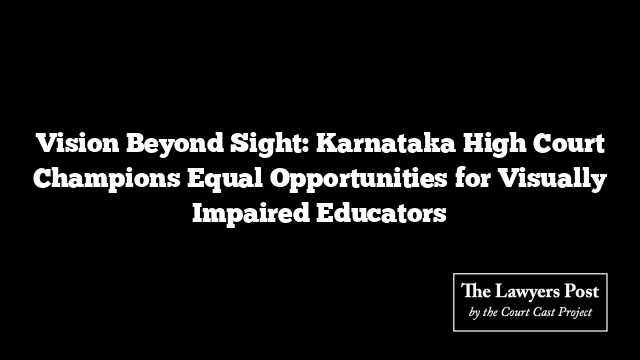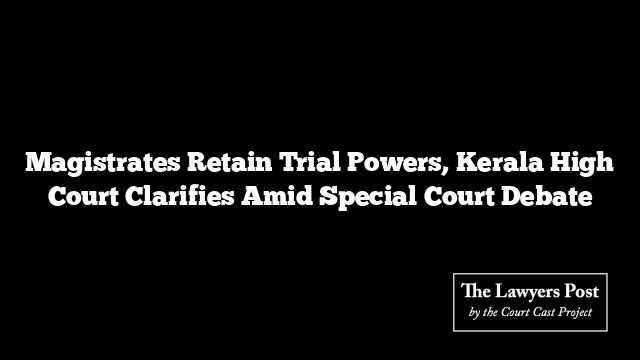In a landmark decision, the Karnataka High Court upheld the State Administrative Tribunal’s directive to consider the application of a visually impaired woman for a teaching position, underscoring that blindness should not hinder an individual’s ability to educate.
The case revolved around Latha HN, a candidate with complete visual impairment and a Scheduled Caste background, who sought a post as a social studies teacher in Kannada. Despite her qualifications, she was excluded from consideration under a 2022 recruitment notice, which only provided job reservations for individuals with “low vision.”
A bench comprising Justices Krishna S. Dixit and C.M. Joshi affirmed the Tribunal’s ruling, emphasizing the State’s obligation to ensure equal opportunities for all, including those with absolute blindness. The court dismissed the argument that complete blindness would impede the performance of a graduate primary teacher’s duties, calling such reasoning difficult to accept.
The bench drew inspiration from figures like John Milton, Helen Keller, and Srikanth Bolla, whose extraordinary achievements demonstrated that visual impairment does not equate to incapacity. “History is replete with instances of blind individuals who have significantly contributed to humanity,” the court noted, adding that the State should prioritize candidates with complete blindness when allocating reserved posts.
Highlighting discrepancies in the State’s recruitment policies, the court criticized the exclusion of blind candidates from reserved positions, stating that such actions conflict with the principles outlined in disability rights legislation. It called on authorities to either earmark specific posts for blind individuals or allow them to compete equally with those classified as having low vision.
This decision not only directs the Karnataka government to reconsider Latha’s application but also reinforces the broader mandate of inclusivity, ensuring that disability does not limit access to public service roles.





